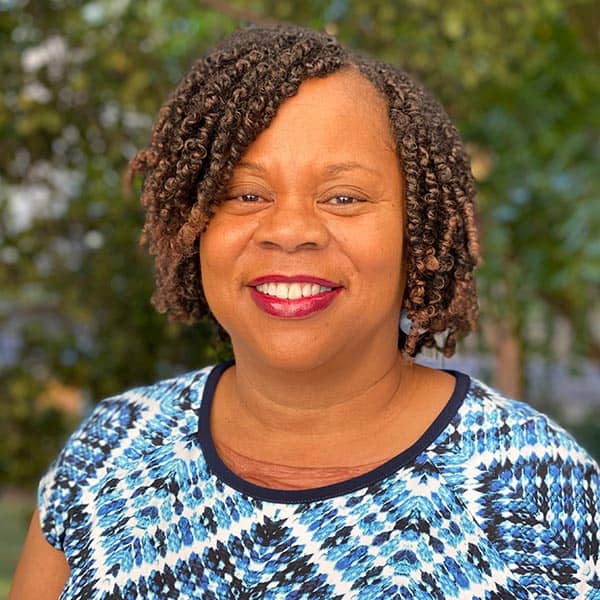Criminal Justice, B.A.
45 Credits | Main Campus
Trinity's criminal justice program focuses on the role of criminal justice within the broader concept of social justice in a multi-cultural, industrialized democracy.
Trinity’s criminal justice program focuses on the role of criminal justice within the broader concept of social justice in a today’s multi-cultural, industrialized society.
Explore the historical, theoretical and practical aspects of criminal justice and analyze current issues in the field, including evaluating the performance of the criminal justice system in:
- deterring crime
- protecting the public
- fostering a just society
Trinity’s location in the nation’s capital affords students the opportunity to observe the criminal justice system firsthand, from traffic court to the U.S. Supreme Court, from a cop on the beat to the Director of Homeland Security, and from the policy created by the city council to the policy laid out by the U.S. Congress.
Through an integration of interdisciplinary learning with the needs of criminal justice in the 21st century, the program prepares you for a wide variety of careers in criminal justice, including law enforcement, corrections and homeland security, and for graduate study in criminal justice and related fields, such as the law and social services.
What You’ll Learn
Criminal Law and Court Procedures
Corrections and Law Enforcement practices
Statistics and Graphical Representation of Data
Addressing Inequality and Discrimination in
Justice Juvenile Justice and Delinquency Prevention
Criminological explanations for antisocial behavior
Global Careers
- DHS Homeland Security Investigations (HSI) Pathways Program
- Court Services and Offender Supervision Agency
- ATF Student Volunteer Intern Program
- Metropolitan Police Department
Applying to the Criminal Justice, B.A. Program
Applying to Trinity is free, and Trinity reviews each application as soon as it is complete: you’ll get our decision right away.
We’re here to help at 202-884-9400 or admissions@trinitydc.edu.
College of Arts & Sciences Admissions Requirements
Applying to the College of Arts & Sciences is a 5-step process:
- Step One: Apply to Trinity
- Step Two: Have your School Administrator submit your Official Transcripts (High School/College/Home School/GED) – International Transcripts must be evaluated prior to submission
- Step Three: Submit Essay “Where do I see myself after obtaining a TWU degree?”
- Step Four: Submit your Recommendation Letter(s) (Teacher/Guidance Counselor/Mentor)
- Step Five: Once your application is submitted, use your log-in credentials to check your status
Admissions Criteria:
- First-Time Freshman candidates for admission should complete a secondary school program that includes 16 academic units: English, Mathematics (algebra, geometry, and trigonometry), Science to include Lab work (biology, chemistry, and physics), History, Foreign Language, and Social Science.
- Transfer candidates must submit official college transcripts from each previously attended college or university.
- Optional Standardized tests such as the Scholastic Aptitude Test (SAT I) and/or the American College Test (ACT) can be submitted. To have your scores sent to us use SAT code 5796 and ACT code 0696.
- Minimum cumulative grade point average 2.0 (on 4.0 Scale).
Applying to Trinity’s School of Professional Studies
Applying is a five-step process:
- Apply to Trinity using the online application
- Submit One (1) Letter of Recommendation
- Submit Official Final Transcript(s) or GED certificate – International Transcripts must be evaluated prior to submission
- Submit an Essay: What unique qualities, experiences, or perspectives would you bring to the Trinity Washington University community
- Once your application is submitted, use your log-in credentials to check your status
Requirements
- High school completion of 10 years or more with demonstrated work experience may submit diploma or GED certificate
- International Students must adhere to International Student Checklist
- Military Students & Family members must complete Veterans Benefits Checklist
- Priority Admission Given to applicants with a minimum cumulative grade point average of 2.0 (on a 4.0 scale)
- Students may apply for credit in experiential learning through program faculty.
- Transfer credits may be accepted toward a major if courses are equivalent to the program of interest.




